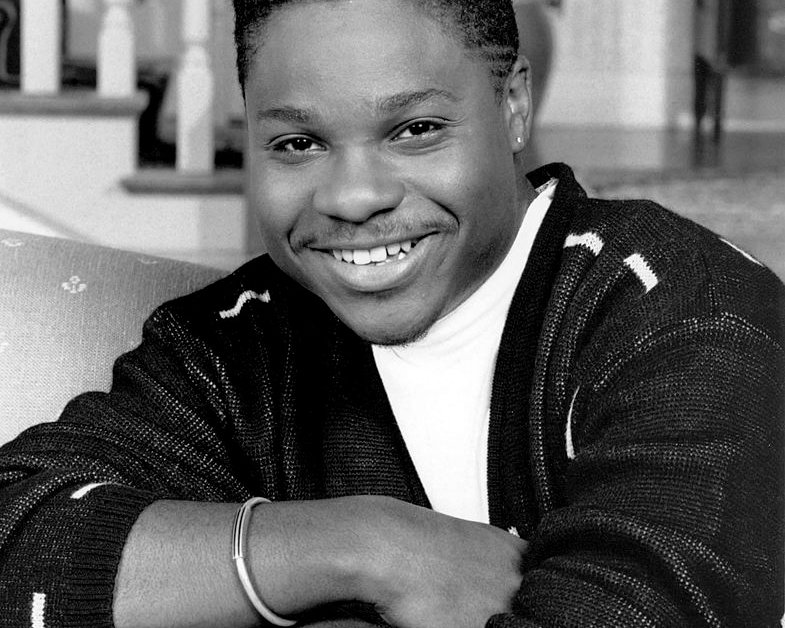In the final episode of The Cosby Show, Dr. Heathcliff Huxtable is beaming with pride—his only son is graduating college. Over the course of the show’s eight year run, this moment was not always taken as a given; the son, Theo Huxtable, was for years presented as a chronic underachiever, more interested in the typical trappings of teenage boyhood—friends, parties, girls, motorcycles. He was never any real trouble, not aggressive, or violent, or otherwise disrespectful, but didn’t seem to be able to live up to the expectations set by his successful father. His graduation from college in the finale is a triumph.
And as Dr. Huxtable sits there, watching the ceremony, barely able to contain his glee, there’s a flashback to the very first episode of The Cosby Show—a classic not only because of the eight seasons of the one of the greatest sitcoms ever that followed, but an episode that stands on its own as comedic genius. In it, the stage is set for Theo’s trajectory: he has brought home a report card full of D grades, and this isn’t something that will be accepted in the Huxtable household. When Dr. Huxtable confronts him about the report card, Theo suggests that he is maybe meant to be a regular person, not a doctor like his father or lawyer like his mother. The Huxtable patriarch responds with a lesson on the financial reality of “regular” people, via Monopoly money. A bit later, a forlorn Theo offers a heartfelt thought. “Instead of acting disappointed, because I’m not like you,” Theo says gently to his father, “maybe you can just accept who I am and love me anyway. Because I’m your son.”
The studio audience applauds, and for a moment everyone feels the tenderness of the request—a boy wanting to be loved by his father for who he is and not what his father desires for him. And then a comedic break: Dr. Huxtable rises and yells, “Theo…that is the dumbest thing I’ve ever heard in my life!” The audience roars with laughter, as surely everyone who has ever seen it does, recognizing the exasperation of a parent wanting what is best for their child and a child’s attempt to weasel out of giving any effort.
Theo Huxtable was, of course, played by Malcolm-Jamal Warner, who at the age of 54, tragically died on Sunday in a drowning accident while vacationing with his family in Costa Rica. The loss has been felt all over—the cultural impact of The Cosby Show can’t be overstated, and Warner was an integral part of it; the show possibly doesn’t even work without him. For everything it sought to do in presenting a black family that was not mired in trauma, its heart could be found in Warner’s portrayal of Theo trying his best to navigate the lofty expectations that come with such freedom, while also wanting to be a teenager, going through all the trials and tribulations that make up that phase of life.
Warner, through Theo, became the relatable, accessible, fun, stylish (with the exception of the Gordon Gartrell catastrophe), good-natured older brother/cousin/friend that a teenager of the 1980s could hope to be or befriend. It is the way Warner will live on for many. And yet for others, that image is tainted, through no fault of Warner’s. Bill Cosby, the show’s creator and namesake, forever tarnished the legacy of The Cosby Show, through his years of sexually assaulting dozens of women. That has nothing to do with Warner, who made no excuses for Cosby when asked about him, but it still lingers.
Which brings me back to that Cosby Show finale: one way to view it is as redemptive for Dr. Huxtable, that his harshness seen in the pilot episode and relentless pressure throughout the series paid off. Through his will, his son succeeded. Another is that Theo, having to overcome the long shadow of his father, managed to do so not only by being determined, but being gentle with himself and accepting of who he was—part way through the series, we learn that Theo has dyslexia, and that his trouble in school was not simply the result of his lack of effort, but a failure on the part of teachers, and his parents, to understand him better. But Theo never wavered in being possessed of his own confidence, or let the harshness of his father dim his good-nature.
The same can be said of Malcolm-Jamal Warner. The long shadow of Bill Cosby has always been there, darker in recent years, and yet he forged a career as an actor that didn’t rely on knowing he was once on one of the most popular sitcoms ever to see he had success. He scored comedic and dramatic roles alike, ranging from the late 1990s sitcom Malcolm & Eddie, which ran for four seasons, to appearing as O.J. Simpson’s best friend Al Cowlings in 2016’s The People v. O. J. Simpson: American Crime Story. He won a Grammy alongside Robert Glasper and Lalah Hathaway in 2015, and then was nominated for another in 2022 for his spoken word album Hiding in Plain View. He may not have become bigger than The Cosby Show, a difficult feat, but he became his own person, his own artist, something beyond even the relationship his audience forged with him.
My favorite of his post-Cosby turns is an episode of the sitcom Community, from 2011, where he plays the previously unseen ex-husband of Shirley Bennett (Yvette Nicole Brown), Andre. In a quiet moment, another character remarks, “Nice sweater” and Andre replies, “Thanks. My dad gave it to me.” The sweater in question bears a striking resemblance to the kind Bill Cosby became famous for wearing. But Malcolm-Jamal Warner made it all his own.
Read the full article here


